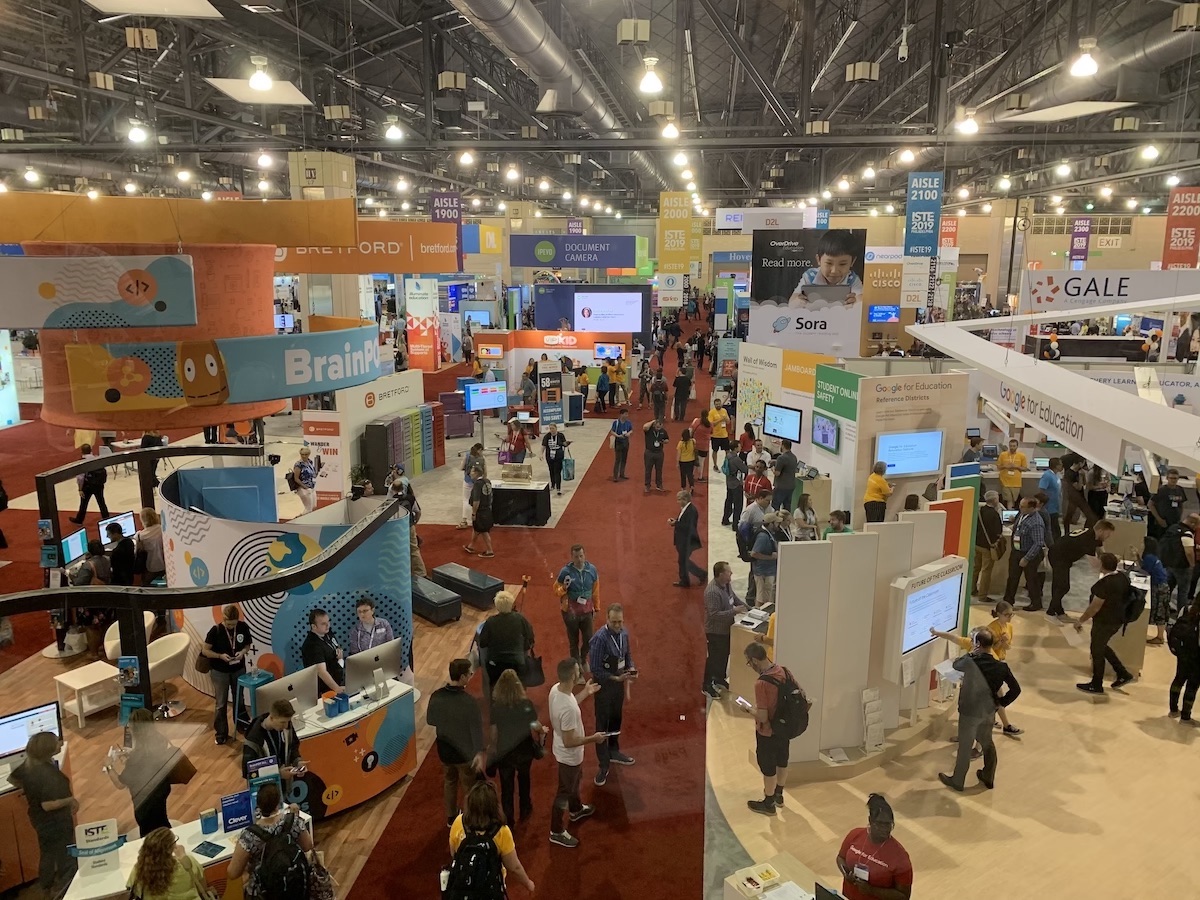
This editorial article is a part of Technical.ly's Career Trajectory Month of our editorial calendar.
During the same month that we here at Technical.ly Philly are examining the concept of career trajectory, or “leveling up,” thousands of educators across the globe have gathered in Philadelphia to do the same.
ISTE, a global edtech conference, is being held at the Convention Center through Wednesday, with panels ranging from how to cultivate more diversity in schools to tech-assisted listening tools and the state of k-12 kids’ digital literacy.
Educators from around the world gathered to discuss in many forms how to best prepare their students for the future.
And one talk, presented by Amanda Cumberland, a senior manager of strategic insights at Cisco, addressed what that future might look like.
“There is a significant transformation of the labor market in the next 10 years,” she said, summarizing research done by Cisco in collaboration with Oxford Economics.
Essentially, it boils down to this, she says: advancements in technology will displace or disrupt a number of careers as they operate today, and millions of people will be affected.
Early on in their research, Cisco and Oxford wanted to know what the tech landscape will look like by the next decade, how it will effect tasks and functions of the workplace, who might be displaced because of advancements and what skills will reign supreme for hiring managers.
Some of the industries they identified as being vulnerable are those that are already visible, such as transportation and warehousing, agriculture, forestry, fishing and hunting and mining. Others were more surprising to attendees.
Those in “middle careers,” Cumberland said, are more at-risk for being displaced from their jobs than those in “low-skill” careers. Folks working administrative or office jobs could see their jobs being animated or done by AI technology faster than those working in say, food service, she says.
“High skill” workers, like lawyers or doctors will likely see some parts of their jobs change due to technology, but they aren’t at risk of being replaced.
When it comes to how many workers could be displaced in the next 10 years, research points to millions, Cumberland said. About 4.3 million workers will be displaced by technology and about 2.2 million will be disrupted, meaning they will have to learn how to do their jobs differently.
This may not be as devastating as it sounds, Cumberland said.
“In 1900, half of the U.S. workforce was working in farming labor, and now it’s less than 2 percent,” she said. “Those who were displaced, I’m sure it was really hard, but they’ve moved on into other jobs.”
Some of the industries most affected, Oxford found, were agriculture, mining, manufacturing, transportation and warehousing and federal, state and local government. But the research found retail, healthcare, information, construction, finance and insurance, STEM and waste management sectors will see growth because of technology changes.
Cumberland acknowledged that some pockets of the world and certain demographics will be hit harder than others.
When it comes to what skills employers will be looking for, research predicts a lack of available people with both skills in technology and human interaction.
In a talk about how technology will change careers over the next decade, researchers are predicting future shortfalls in both computer skills (programming, web design) and human skills (negotiation, instructing). pic.twitter.com/yddoTQpkXb
— Paige Gross ✨ (@By_paigegross) June 25, 2019
The research suggests that there will be gaps for skills like programming, tech design, systems evaluation and analysis, but also for things like negotiation, social perceptiveness and ability to instruct.
“Did human skills deteriorate because of technology?” one attendee asked.
It’s hard to prove, Cumberland said.
People planning their careers or assessing them mid-way through should essentially look for a mix of skills.
“Coding language might change or computer development might change, but the way we think about how to go about those changes won’t,” Cumberland said. “But teaching them how to think about those changes is something we can do.”
Just as technology advancement has replaced or pushed out certain jobs, it’s also created many, she said.
“Think about the creation of the iPhone,” Cumberland said. “With one device, think of all the jobs that were created, the industries, app development.”
The ISTE conference continues at the Convention Center through Wednesday night.
Join the conversation!
Find news, events, jobs and people who share your interests on Technical.ly's open community Slack

Philly daily roundup: East Market coworking; Temple's $2.5M engineering donation; WITS spring summit

Philly daily roundup: Jason Bannon leaves Ben Franklin; $26M for narcolepsy treatment; Philly Tech Calendar turns one

Philly daily roundup: Closed hospital into tech hub; Pew State of the City; PHL Open for Business


